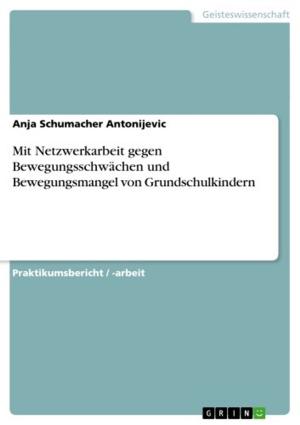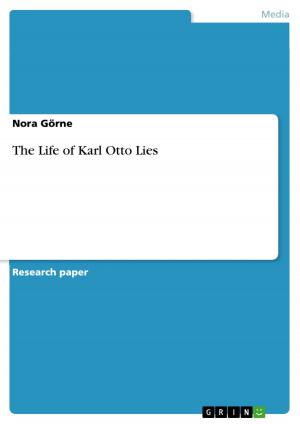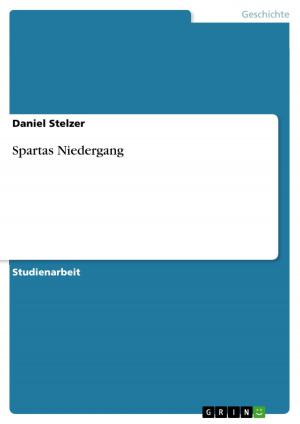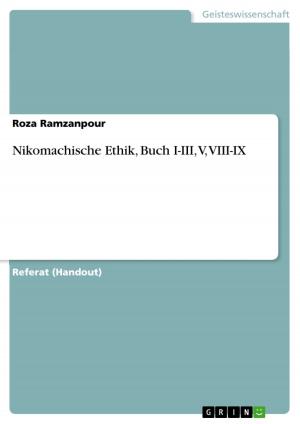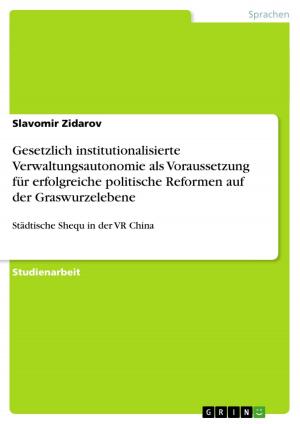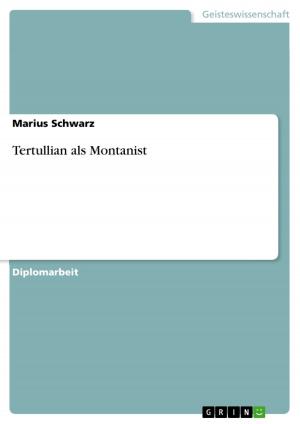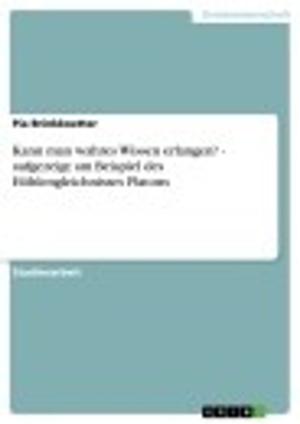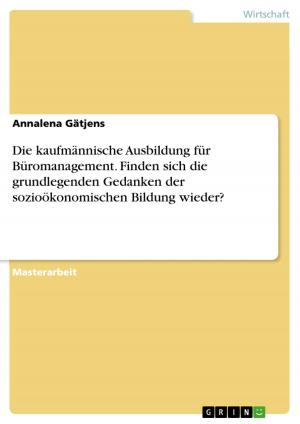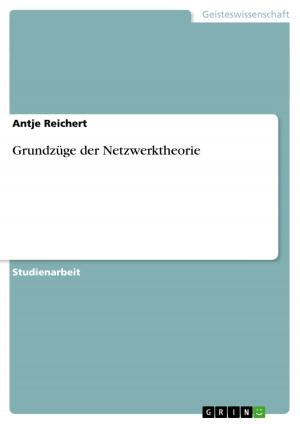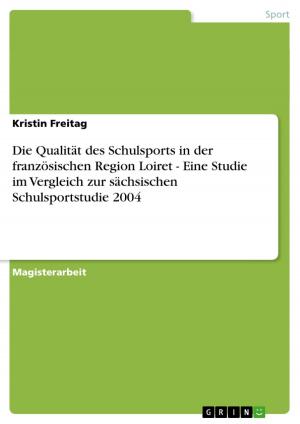The Irish English 'after' perfect
An example of Celtic influence on the English language
Nonfiction, Reference & Language, Study Aids, ESL, Foreign Languages| Author: | Anja Hempel | ISBN: | 9783640850006 |
| Publisher: | GRIN Verlag | Publication: | March 3, 2011 |
| Imprint: | GRIN Verlag | Language: | English |
| Author: | Anja Hempel |
| ISBN: | 9783640850006 |
| Publisher: | GRIN Verlag |
| Publication: | March 3, 2011 |
| Imprint: | GRIN Verlag |
| Language: | English |
Seminar paper from the year 2009 in the subject English - Grammar, Style, Working Technique, grade: 1,0, Free University of Berlin (Englische Philologie), course: Seminar 'History and Varieties of English', language: English, abstract: The development of different regional varieties of English is an important field of research in historical linguistics. A multitude of theories explain the innumerable differences in pronunciation, vocabulary and grammar that exist within the English speaking world. An important external reason for the great linguistic variation making English a 'world language' are the influences from foreign languages that the English language absorbed in language contact situations. The only language contact which had been for a long time regarded as quite 'unproductive', except from some marginal loan words, is that of English and Celtic in the British Isles. Therefore, it was excluded from serious linguistic research up to the 20th century. Modern investigations finally unveiled that the long and close coexistence had, of course, a remarkable impact on all British varieties in the areas of syntax and phonology, too (Filppula et al. 2008: 1f.). The aim of my paper is to reconstruct the linguistic development during the contact situation between Irish Gaelic (one variety of Celtic) and English on the basis of one selected grammatical feature, namely the after perfect construction in their generated contact variety: Irish English (also Hiberno-English, Anglo-Irish). After giving some general information on formation and usage of the rare grammatical construction, I will prove the after perfect construction being a result of the English-Celtic contact situation in Ireland. In that respect, I will look at interesting aspects of scholarly debates concerning the language shift, resulting in the Irish English variety as it is spoken today.
Seminar paper from the year 2009 in the subject English - Grammar, Style, Working Technique, grade: 1,0, Free University of Berlin (Englische Philologie), course: Seminar 'History and Varieties of English', language: English, abstract: The development of different regional varieties of English is an important field of research in historical linguistics. A multitude of theories explain the innumerable differences in pronunciation, vocabulary and grammar that exist within the English speaking world. An important external reason for the great linguistic variation making English a 'world language' are the influences from foreign languages that the English language absorbed in language contact situations. The only language contact which had been for a long time regarded as quite 'unproductive', except from some marginal loan words, is that of English and Celtic in the British Isles. Therefore, it was excluded from serious linguistic research up to the 20th century. Modern investigations finally unveiled that the long and close coexistence had, of course, a remarkable impact on all British varieties in the areas of syntax and phonology, too (Filppula et al. 2008: 1f.). The aim of my paper is to reconstruct the linguistic development during the contact situation between Irish Gaelic (one variety of Celtic) and English on the basis of one selected grammatical feature, namely the after perfect construction in their generated contact variety: Irish English (also Hiberno-English, Anglo-Irish). After giving some general information on formation and usage of the rare grammatical construction, I will prove the after perfect construction being a result of the English-Celtic contact situation in Ireland. In that respect, I will look at interesting aspects of scholarly debates concerning the language shift, resulting in the Irish English variety as it is spoken today.


